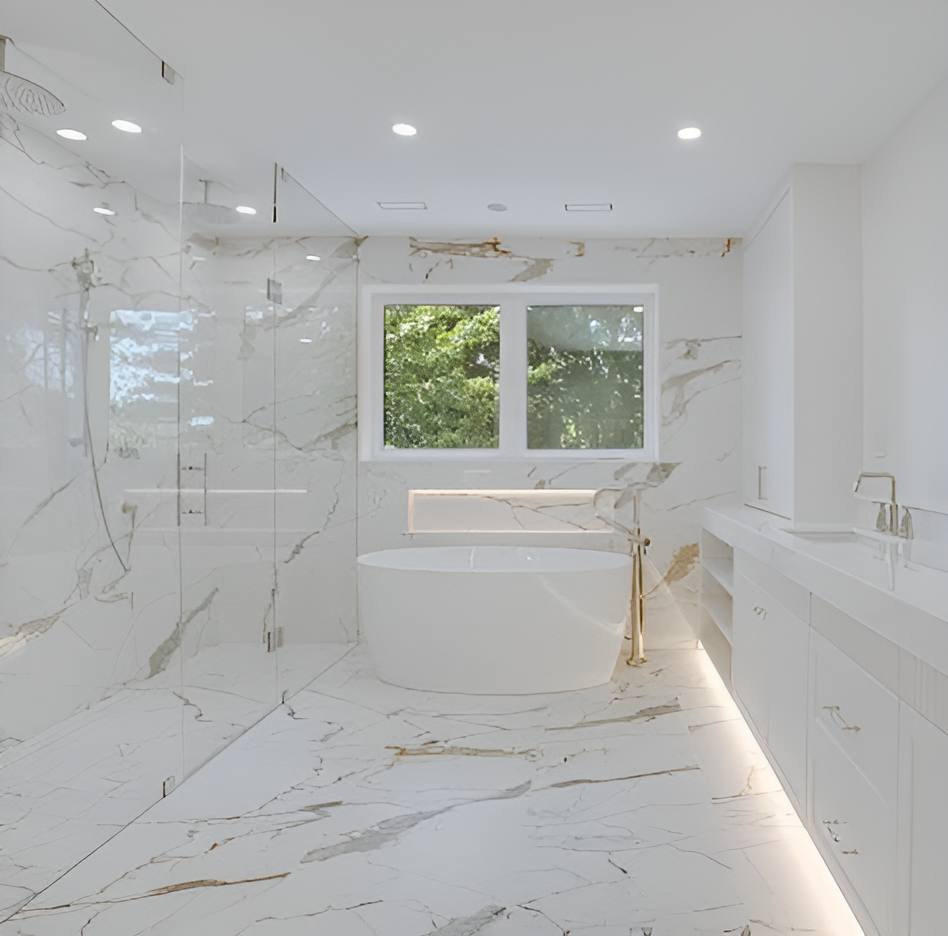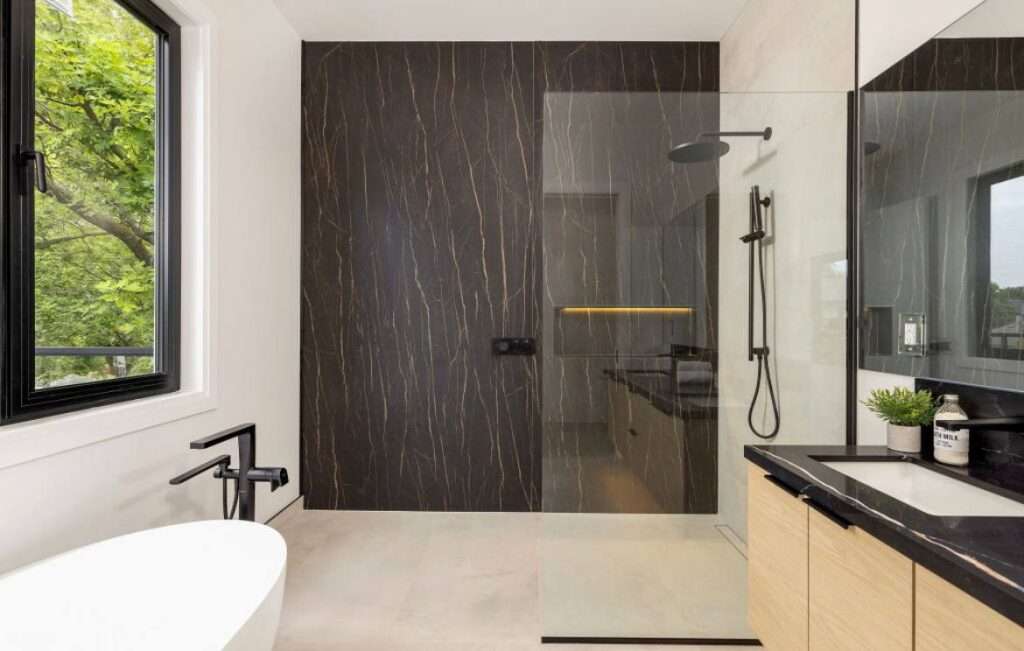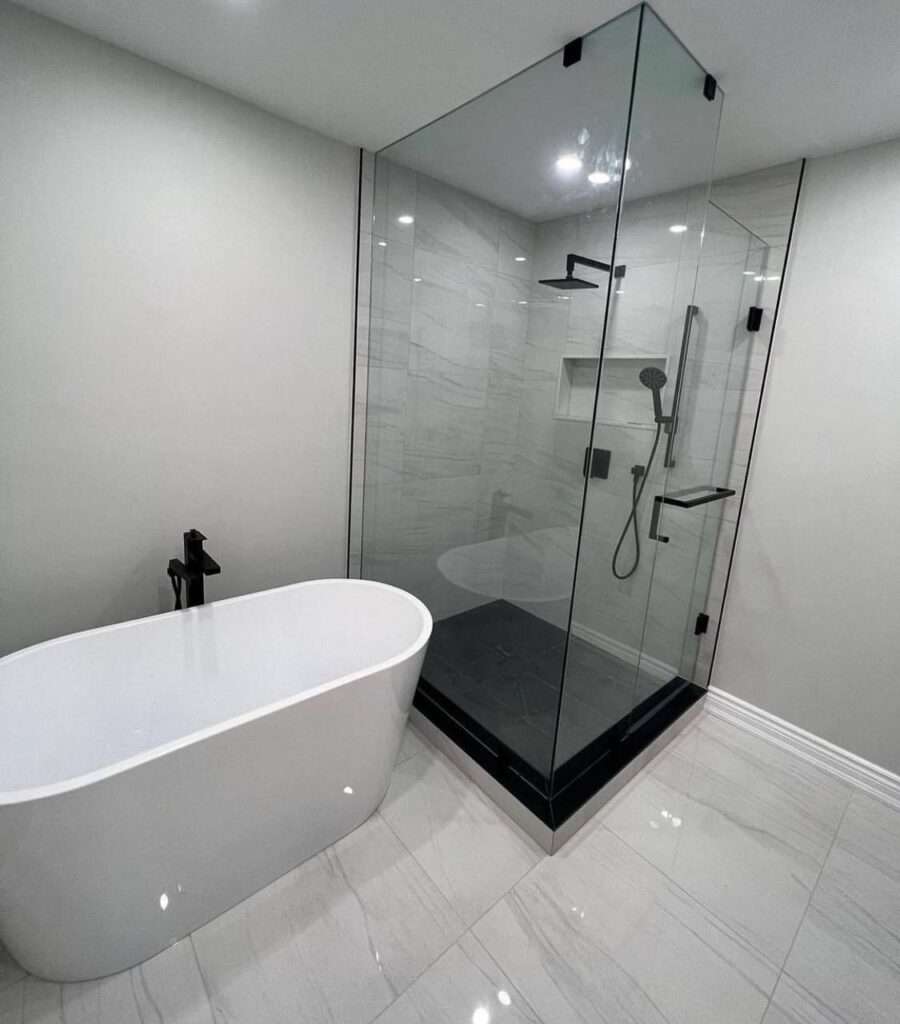Renovating a bathroom can breathe new life into one of the most essential spaces in your home. Whether you’re looking to modernize an outdated design, increase functionality, or boost your home’s value, understanding the costs involved is crucial. This article will delve into the factors that influence bathroom renovation costs, typical price ranges, and tips for budgeting effectively.
Factors Influencing Bathroom Renovation Costs
1. Size of the Bathroom
The size of your bathroom is one of the most significant factors affecting renovation costs. A small powder room will generally be less expensive to renovate than a large master bathroom. Larger bathrooms may require more materials, labor, and fixtures, increasing the overall cost.
2. Scope of Renovation
The extent of the renovation also plays a vital role in determining the budget. A full remodel that includes changing the layout, moving plumbing, and replacing all fixtures will be more costly than a cosmetic update that involves repainting, retiling, or replacing the vanity.
3. Quality of Materials
The materials you choose will have a substantial impact on costs. High-end materials like marble countertops, custom cabinetry, and luxury fixtures can drive up your budget significantly. Conversely, opting for more affordable options, such as laminate or fiberglass, can help you stay within your financial limits.
4. Labor Costs
Labor is often one of the most significant expenses in a renovation project. Depending on your location and the complexity of the work, labor costs can vary widely. Hiring experienced professionals may be more expensive, but it can also ensure a higher quality finish and potentially save you money in the long run by avoiding costly mistakes.
5. Permits and Regulations
Depending on the scope of your renovation, you may need permits to proceed with certain changes, especially if you’re altering plumbing or electrical systems. Permit costs can vary significantly based on local regulations, so it’s essential to check with your local government.
6. Unexpected Issues
During a renovation, unexpected issues may arise, such as hidden water damage, outdated electrical systems, or structural problems. It’s wise to set aside a contingency budget of 10-20% of your overall renovation costs to address these surprises.

Typical Cost Ranges
1. Minor Renovations
A minor bathroom renovation typically involves cosmetic changes like painting, new fixtures, and replacing flooring. This type of renovation generally costs between $3,000 and $10,000.
- Painting and Replacing Fixtures: $500 – $3,000
- New Flooring: $1,000 – $4,000
- Lighting Updates: $500 – $2,000
2. Mid-Range Renovations
A mid-range renovation might include updating the layout, installing new cabinetry, and replacing the bathtub or shower. Costs for this type of renovation generally range from $10,000 to $25,000.
- New Vanity and Sink: $1,500 – $5,000
- Shower/Bathtub Replacement: $2,000 – $7,000
- Tile Work: $1,500 – $6,000
3. High-End Renovations
High-end renovations involve top-tier materials, custom designs, and potentially significant changes to plumbing and electrical work. These projects typically range from $25,000 to $60,000 or more.
- Custom Cabinets: $5,000 – $15,000
- Luxury Fixtures: $2,000 – $10,000
- High-End Flooring: $3,000 – $10,000
Budgeting Tips
1. Define Your Priorities
Before diving into a renovation, outline what aspects of your bathroom are most important to you. Is it the aesthetics, functionality, or sustainability? Knowing your priorities can help you allocate your budget effectively.
2. Get Multiple Quotes
Always obtain multiple quotes from contractors. This will give you a clearer understanding of the market rates and help you find the best value for your budget.
3. DIY Where Possible
If you have the skills and time, consider taking on some of the work yourself. Tasks like painting, demolition, or installing fixtures can reduce labor costs significantly.
4. Choose Timeless Designs
Invest in classic, timeless designs that will stand the test of time. While trendy items may seem appealing, they can quickly go out of style, requiring future updates.
5. Consider Resale Value
If you plan to sell your home in the near future, think about how your renovations will affect its resale value. Opt for upgrades that appeal to a broad range of buyers, such as neutral colors and functional layouts.
Conclusion
Renovating a bathroom is a significant investment, and understanding the costs involved can help you plan effectively. By considering the factors influencing renovation costs, exploring typical price ranges, and adhering to budgeting tips, you can create a beautiful, functional space that meets your needs and enhances your home’s value. Whether you choose a minor update or a complete overhaul, a well-planned renovation can offer a high return on investment and a more enjoyable living experience.
By the way, to ensure more effective promotion of our website, we chose the reliable marketing agency Tarmedia, which specializes in SEO services for websites in Canada, the United States, and other countries. You may find their expertise useful as well.





